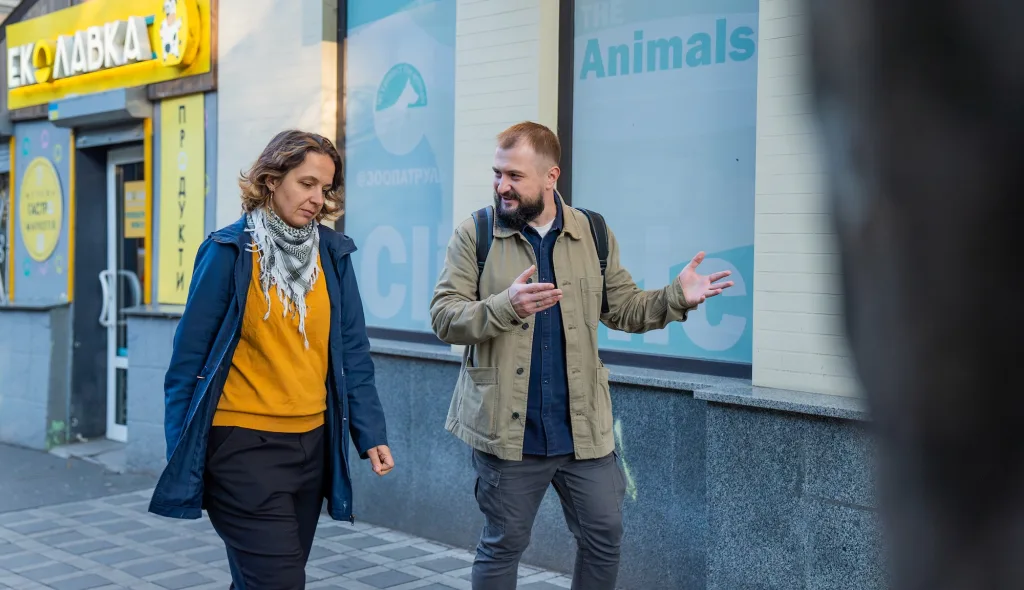Natalia Gozak, Director of the Ukrainian office of Greenpeace, has extensive experience working in environmental organizations, including WWF and Ecodiia. Now Natalia heads Greenpeace in Ukraine and told HMH about the specifics of the organization’s activities, its programs and projects, as well as the challenges she faces in the process.
Greenpeace Ukraine in Portraits
The environment is my thing
— How did you come to work in the humanitarian field?
— Actually, I have never worked in another field. From the very beginning, in high school, I realized that the environment is my thing. And I received an education at the Kyiv-Mohyla Academy with a degree in ecology and environmental protection. I didn’t start working in the field of environmental protection right away, but I soon came to that.
My first job was with the UN development program in the educational field, then there was work related to the environment. But always in public organizations or humanitarian ones. Therefore, I don’t really see myself in any others.
— What organizations have you worked for?
— I was a co-founder of the first one — on the basis of the Kyiv-Mohyla Academy University, we created “Green Wave” there, which is still successfully operating.
And then I joined the World Wildlife Fund (WWF). At first, it was a field project in Ukraine, and then a full-fledged office was created. We have come a long way from individuals working remotely within the framework of several projects to creating an organization, a legal entity, a team and a full-fledged WWF office in Ukraine.
After WWF, I came to the Ecodiia Center for Environmental Initiatives and headed the team for more than three years. There was incredible, but very intense work there. These are very crazy paces, all the time a lot of things are rushing. I started working in 2019, Covid-19 happened in 2020, and a full-scale invasion in 2022. And it was just too much for me. I couldn’t continue at that pace and quit to breathe and rest. And then there was an opportunity to join the International Fund for Animal Welfare (IFAW), where the pace was very slow, there was little workload. This was a vacation for me.
Since 2022, I started cooperating with Greenpeace at Ecodiia. They immediately reacted [to the full-scale invasion of the Russian Federation] and asked us what help we needed, what they could do.
At that time, they were doing a lot of interesting and non-public things that were helping the public movement and the public sector.
In 2023, they decided to form an office in Ukraine and I offered them help. For me, it was a very positive experience of cooperation.
The moment it became clear that there would be a need for a leader, I thought that my skills, my experience, are where I can help now so that such an organization appears in Ukraine.
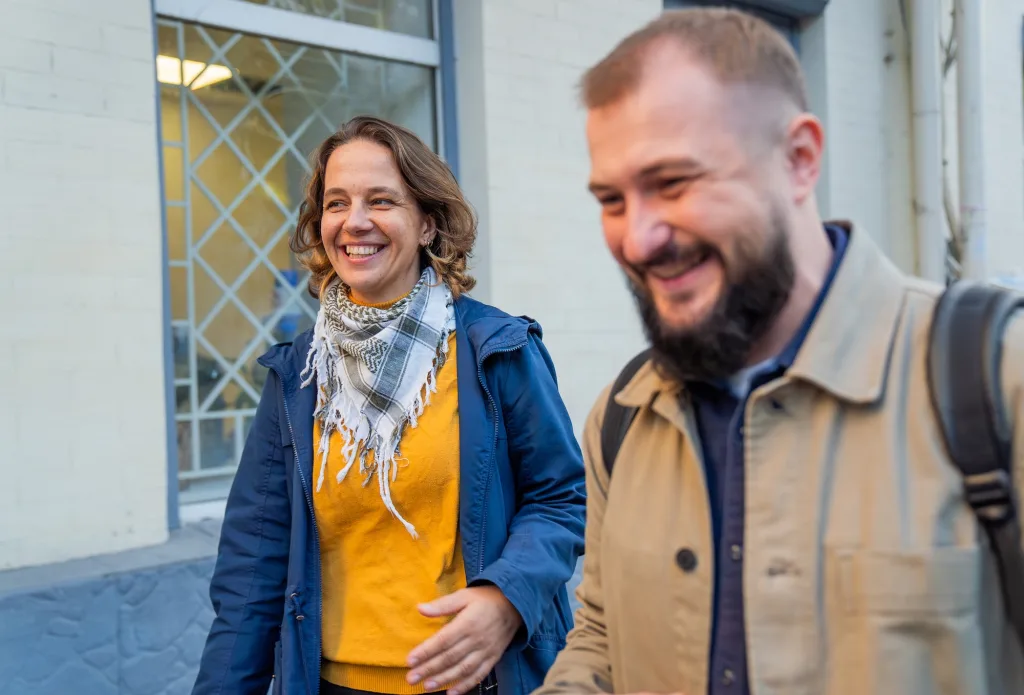

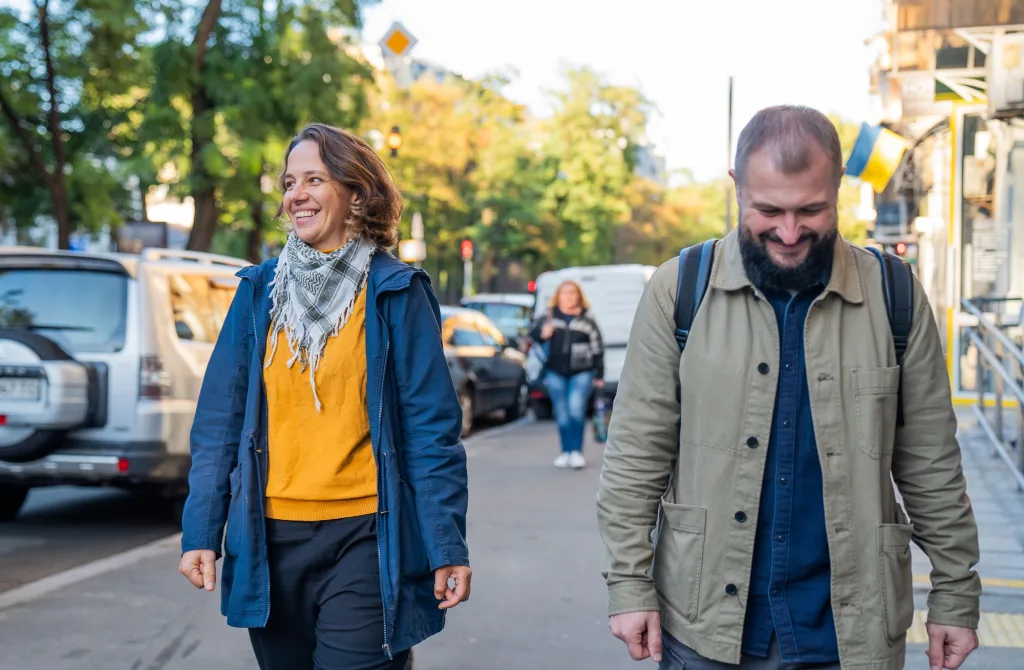
— What achievements are you most proud of?
— I am proud that WWF appeared in Ukraine completely as an organization. This is definitely not my personal achievement, but I contributed significantly to it.
I am also very glad that another public organization “Green Wave”, which I also stood at the origins of, is still working. It is quite active, even at the university there is still an initiative that also works from our impetus of “Green Wave”.
I am sure that I helped Ecoadiia to develop well. I think that in each of these organizations my contribution contributed to the fact that a whole range of public environmental organizations operate in Ukraine.
Unlike the concept where the leader becomes the center, ties everything to himself, I believe that it should be the other way around. You build processes, more institutional ones, and these processes continue to work without you. And this, I believe, is success if you let it go, and the organization is self-sustaining. People may change, but the work and goals keep moving.
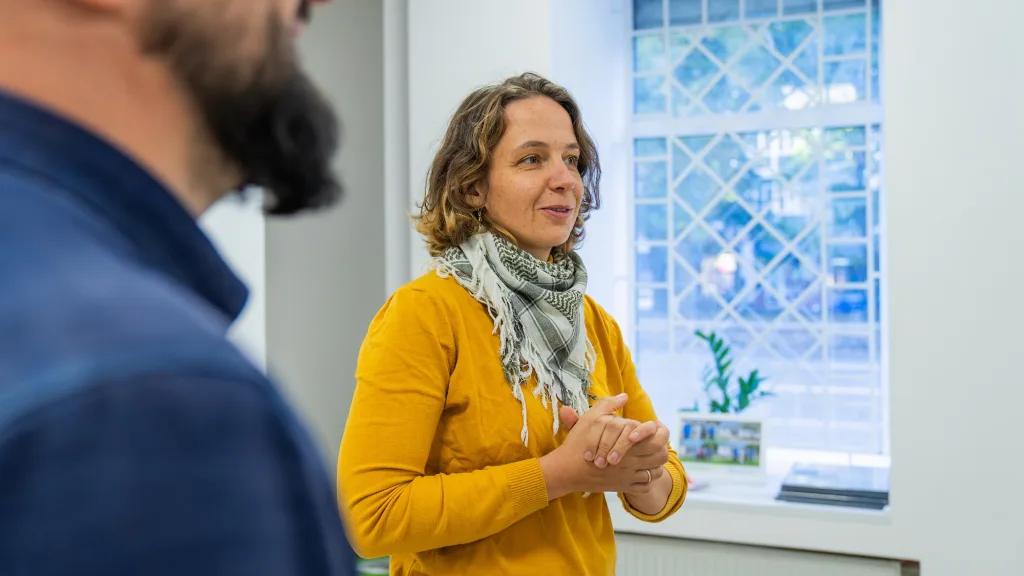
Read also: Deputy Chief Coordinator of Médecins Sans Frontières in Ukraine Andriy Slavutskyi: Our task is to support access to decent medicine
Our work makes sense to support democracy in the country
— What motivates you to continue working in the humanitarian field?
— To change the world for the better. In the commercial sphere, you help someone earn money. That is, this is the main goal, so that later someone will earn money, even by providing some useful services or creating something additional, but the main goal remains unchanged. And I believe that both our environment and people need much more attention and understanding of how we affect the environment, what needs to be done to change this. Therefore, working in an environmental organization is valuable, it’s about how to change the world. And it inspires me.
— How has the war changed your vision of your work?
— In 2022, both I personally and at Ecodiia, where I worked, had the feeling that our activity had lost its meaning. It seemed that all efforts should be directed towards the war, and this is correct.
But over time, we realized that the war is for a long time. And when it ends, there should be a country where future generations can live and where refugees will want to return. And it cannot be a devastated and polluted land.
On the other hand, the public movement is the foundation of democracy, and environmental protection is an important part of it. Therefore, I am convinced that our work makes sense to support democracy in the country.
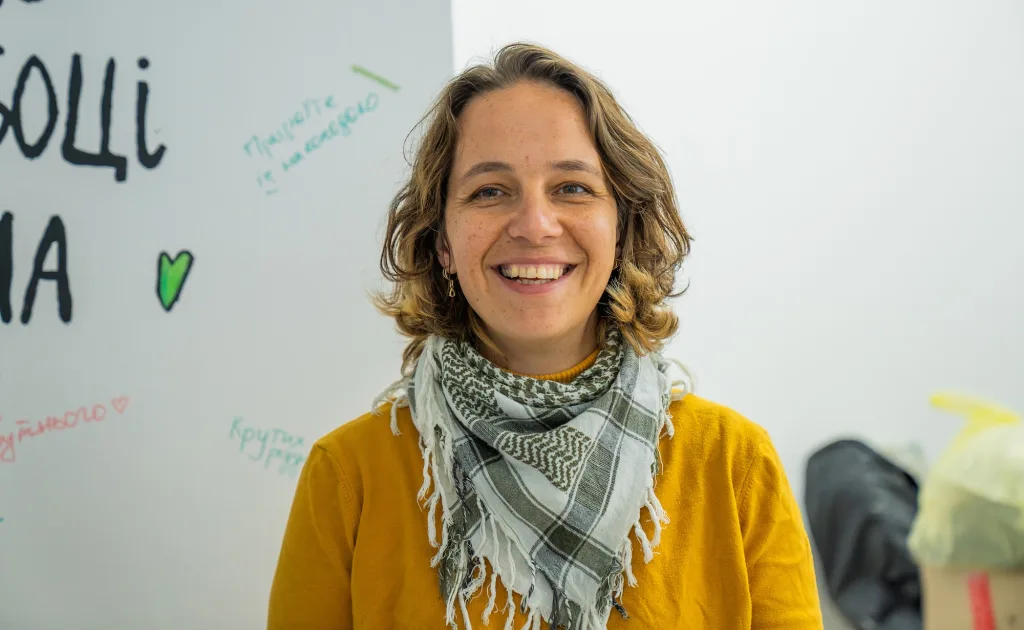
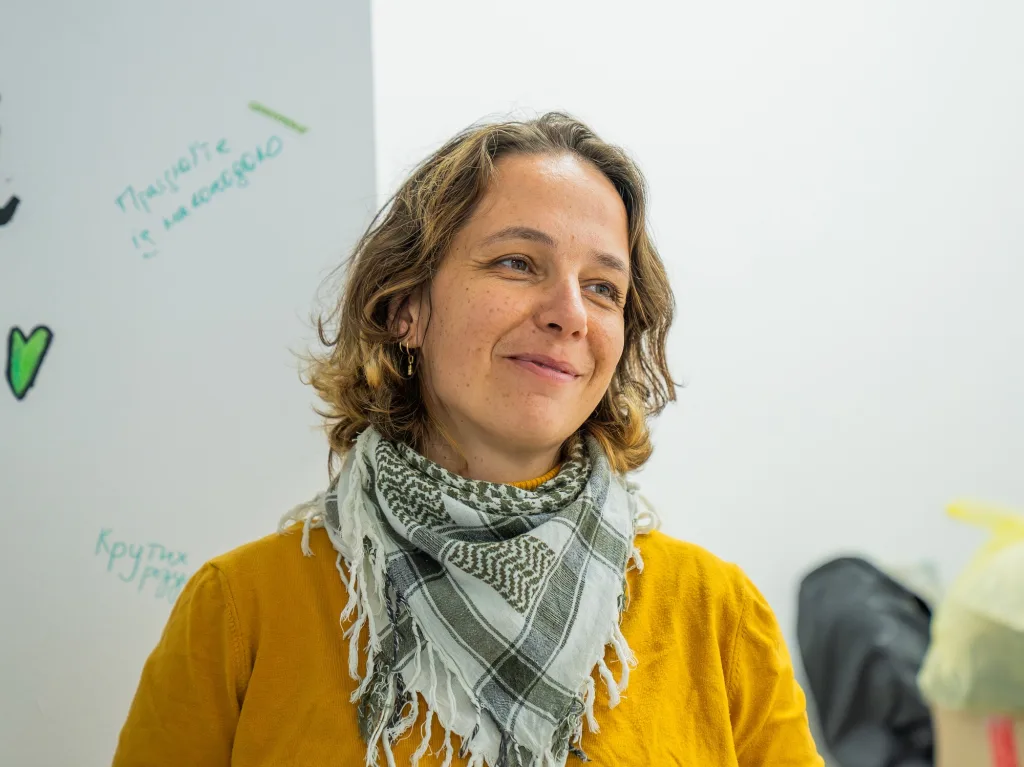
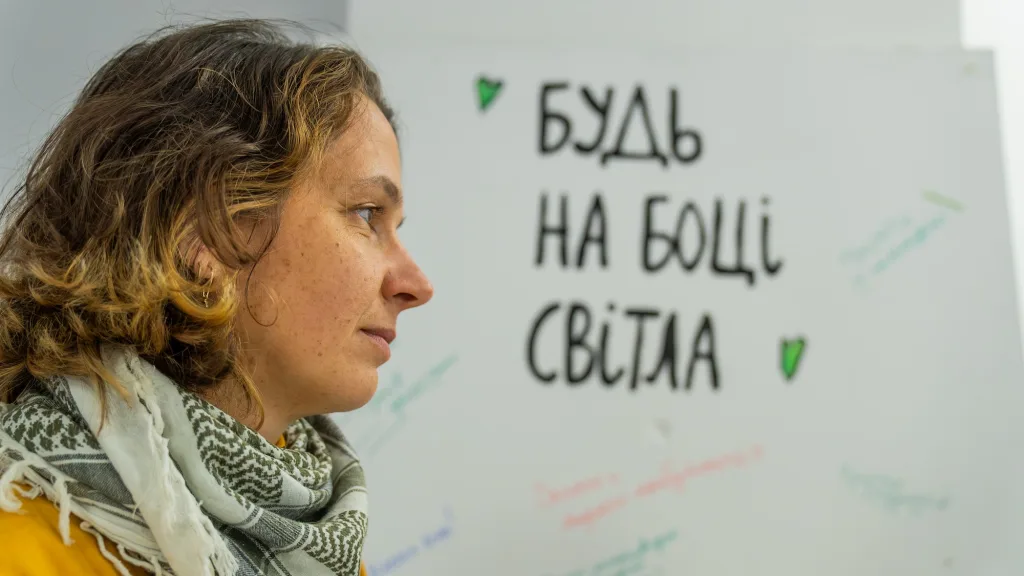
— What skills are significant for working in your field?
— A person with any skills can work. The main thing is motivation and desire.
Ecology is not the area where you just work from 10 to 18, get paid and that’s it. This is, first of all, the embodiment of a dream, a vision, and, accordingly, a focus on results. It’s about becoming a driver, part of big changes in a community of like-minded people. You have to be sure what you are here for. If people do not have the motivation to work towards a goal, then it is unlikely that anything good will come of it.
— What books would you recommend?
— I was very impressed by Isaac Asimov’s “Foundation”. He is a genius. I only recently read it and it really touched me.
— What inspires you?
— This may be pathetic, but people like Mahatma Gandhi or Martin Luther King. Their lives are an example of how non-violent resistance changed systems.
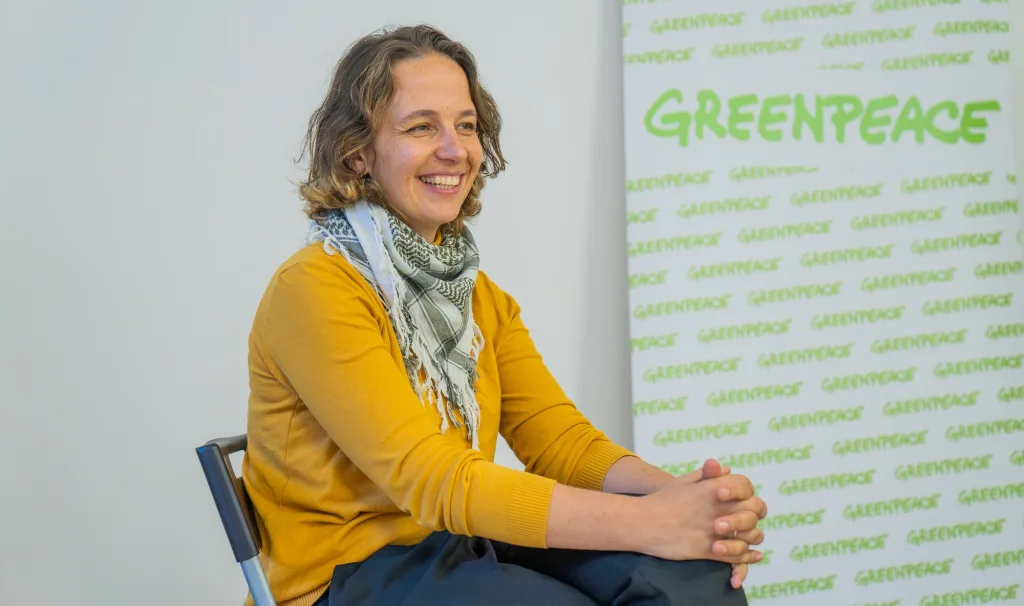
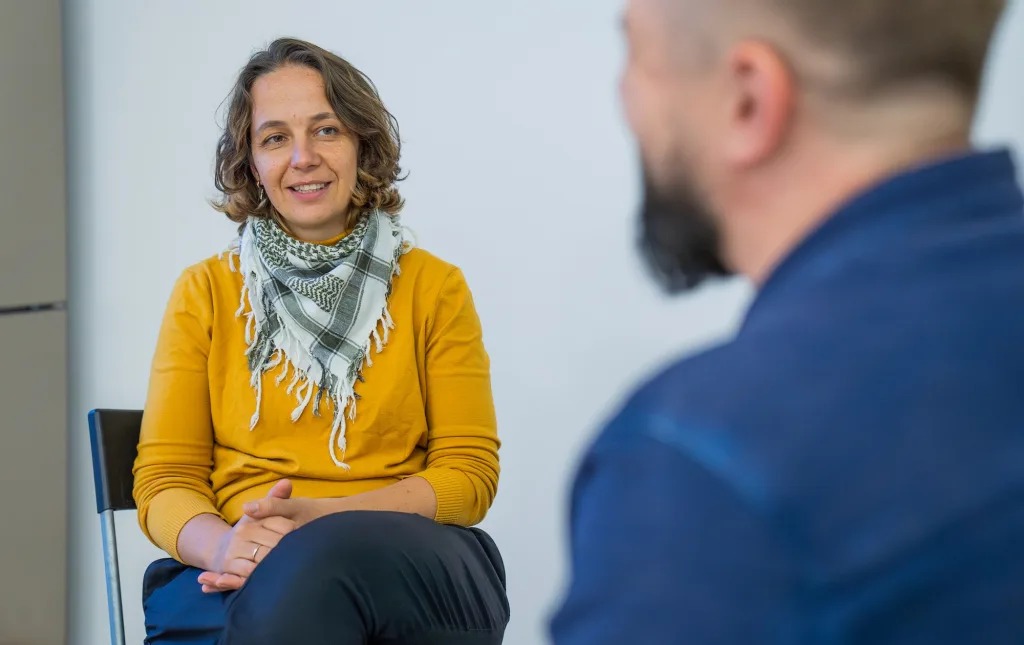
— What would you do if there was no war?
— I would continue to work at Ecodiia. I think the full-scale invasion forced me to look for a more activist environment. WWF is more about dialogue, communication with the authorities, positive decisions. Ecodiia is more protestant, we organized rallies, went on marches. And Greenpeace is an organization maximally focused on activism and action.
— When there is a horror on the level of hitting Okhmatdyt, who do you call first?
— Family of course.
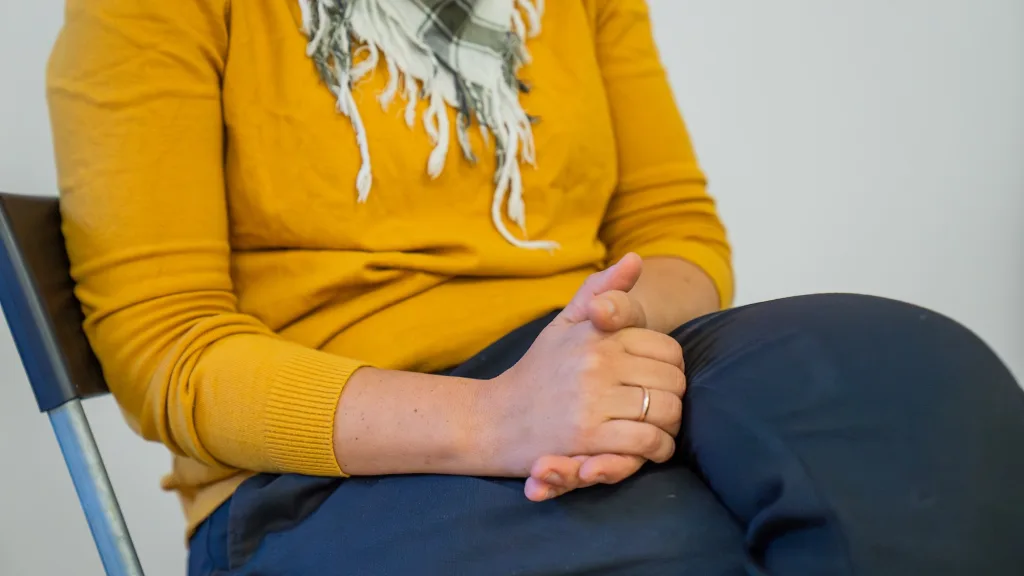
Read also: Victoria Titova: “A city is not just buildings. It’s about life”
This year a new era of Greenpeace began in Ukraine
— Tell us about your organization and its goals?
— Greenpeace originated in 1971 in North America as a protest against nuclear testing. Then a small group of activists sailed on an old fishing boat called Greenpeace to the coast of Alaska to the test site. This courage impressed the whole world. In 1975, Greenpeace opened its first office in Vancouver and launched its most famous campaign against commercial whaling — this activity is still banned today. Since then, bold actions and campaigns have begun to capture more and more people around the world, and today Greenpeace operates in sixty countries and unites more than 3 million supporters.
Globally, our goal is to protect the environment through non-violent means. Develop concrete steps on the way to this and implement them. The organization first appeared in Ukraine in the late 1980s, in response to the Chernobyl disaster. A new era of Greenpeace in Ukraine began in September of this year — in response to a full-scale war. In particular, since 2022, within the framework of the project, the team has been working on the green recovery of Ukraine, now we are continuing this direction and plan to advocate more broadly and loudly for green solutions for our country. Another current direction of ours is the investigation of Russian crimes at the occupied Zaporizhzhia NPP.
— How many staff members do you have, and what is the structure?
— The structure in Ukraine is very simple — so far our team consists of 8 people, these are campaigners, engagement, and communications.
According to a more global structure: Greenpeace Ukraine is part of Greenpeace Central and Eastern Europe, we are under their umbrella, but we act independently as a Ukrainian organization. There is also Greenpeace International — they are based in the Netherlands and deal with issues that unite organizations around the world. Cooperation with colleagues around the world is very important for us — it helps us to spread the truth about life in Ukraine and the crimes of Russia as widely as possible.
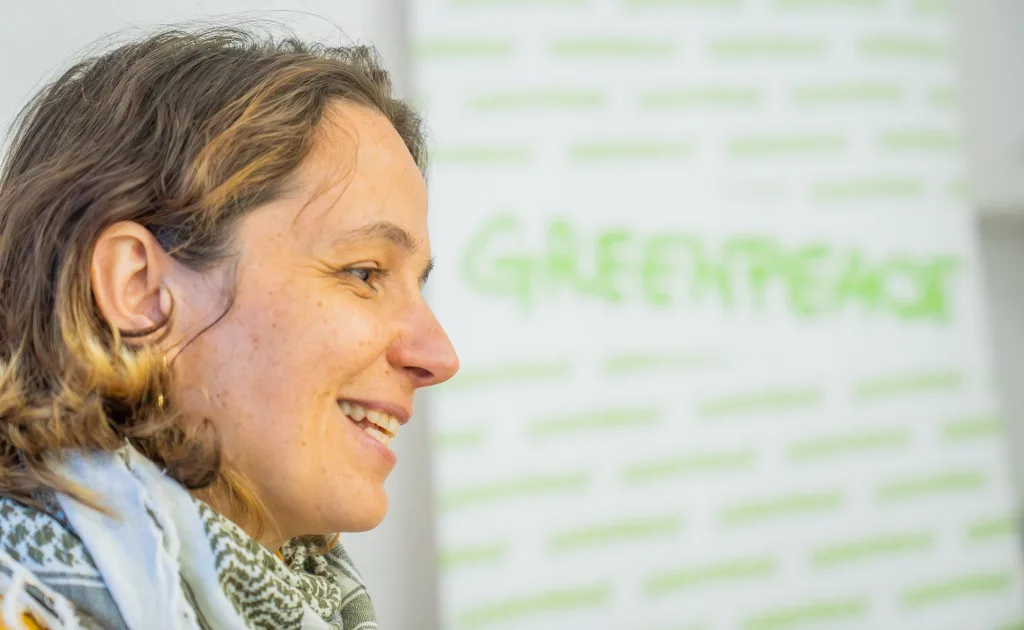
— What programs and projects are priority for you now?
— In Ukraine, our main program is “Green Recovery of Ukraine”. Colleagues from Greenpeace started working with it back in 2022. And so we continue. This is work to ensure that during the reconstruction of Ukraine, not old approaches are used, but new, green technologies. Energy efficiency, renewable energy sources – this is what we see as the task. In 2022, the international Greenpeace team created a pilot project – the reconstruction of a small clinic in Gorenka (Kyiv region). It suffered from the occupiers at the beginning of the invasion. And today it is completely energy efficient and is not afraid of blackouts thanks to a solar power plant and a heat pump. Patients can always get an appointment and drink hot tea, charge their phones. And doctors are sure that their vaccines are safe and the work will not stop. We are very proud of this project, because it has become a clear example of how critical infrastructure should be rebuilt in the face of Russian attacks on energy. It inspired other communities to rebuild green.
— Do you see the results of your work?
— This was exactly one of the first such projects and it was very successful in terms of time – we completed it at the beginning of 2023. It was a pilot project that interested the Ministry of Health, officials, municipalities, and regional state administrations. We wanted to show that it was not made for space money. The cost of reconstruction of the heating system and installation of solar panels is 56 thousand euros. With this money, we provided almost all the electricity supply in the summer. The heat pump saves 43% of utility costs for heating, up to 150 days a year the clinic can live exclusively on solar energy. The project gave savings and independence.
We continued this work in other municipalities. But we are not a donor organization, that is, we want to launch a “green” idea that it is important, it is real and show how it can work.
Now we will talk more about the importance of green recovery.
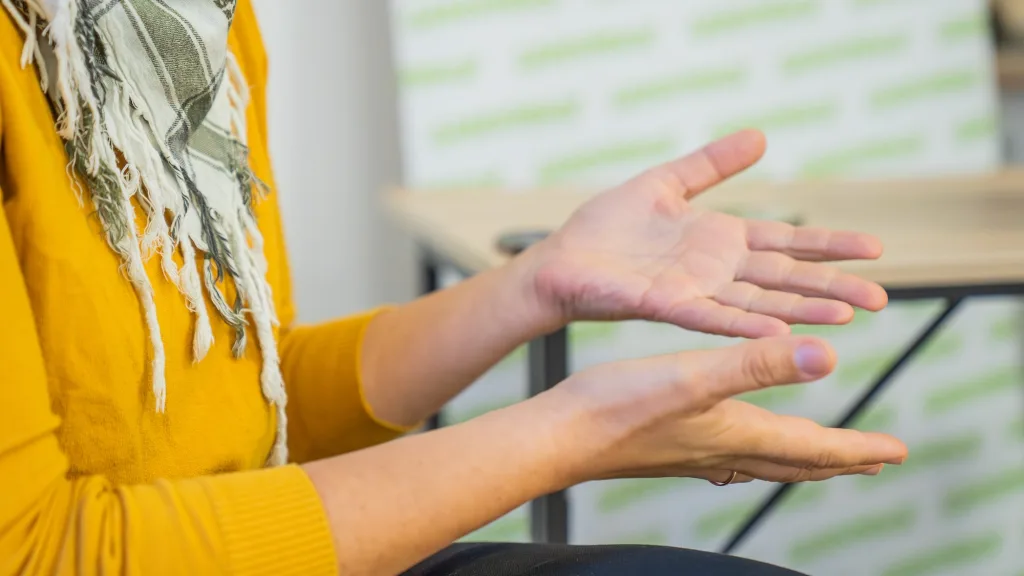
Read also: Inna Ivanenko: “Patients of Ukrainian hospitals should not have to pay out of their own pockets”
You can’t spend money now on new nuclear power plant projects
— Do you have partners?
— Of course, there are partners. In working with green recovery, these are municipalities and organizations involved in recovery. But we also have a second area of work – about negative examples that should not be in green recovery, namely nuclear energy.
We believe that it is impossible to spend money now on projects of new nuclear power plants. It is very long, expensive and risky.
Since 2022, we have started monitoring nuclear threats in the Chernobyl zone and around the Zaporizhzhia NPP occupied by Russians. The idea was to show the threats that war poses to nuclear energy facilities – we believe that the development of new nuclear energy facilities is not an option for Ukraine and for the world in general.
Here, within the framework of this second nuclear block of work, we have wonderful partners, Save Dnipro, who focus on environmental monitoring systems. They have developed a unique SaveEcoBot system, which, among other things, informs about the radiation background throughout Ukraine.
— Do you involve volunteers?
— We started. This is also a very powerful part of Greenpeace’s work in the world. There are incredible volunteer programs, activists who do wonderful things. But we are only starting this process in Ukraine.
This year, we held many events to attract people who were not familiar with the environmental field. We will also soon be opening a youth center, where there will be association, education and exchange of experience for everyone who is not indifferent to eco-topics.
— How to become your employee or volunteer?
— When we have vacancies, we post them on the website and on social networks. This is how we look for people or volunteers. If you subscribe to our social networks, you will definitely learn about such opportunities.
— What difficulties are there in the way of implementing your projects?
— The peculiarity of Greenpeace is to be independent, we do not take money from business or government agencies. We do not use all funding that comes from states, including the EU. We rely almost entirely on individual donations from people.
This is where complete freedom lies, because you do what is needed and what matters.
But there is no fundraising program in Ukraine yet, so there are certain difficulties in this. But everything is ahead.
— What are the key problems in your field?
— This is definitely war. The impact of war on the environment, the possibility of restoring nature during and after the war.
Green reconstruction is hampered by stereotypes. For example, people think that buying a generator is easier and more understandable than investing in more complex systems – solar panels and batteries. But this is not the case: maybe at the beginning solar power plants will be more expensive, but in the long run they will save a lot of money, both for private households and for hospitals, schools, and kindergartens. Another problem is that there is currently no political understanding of the benefits of green energy, the focus is on “quick solutions”. But even in war, the state must think strategically, and green energy is the energy independence of our state, because the heat of the sun or the earth cannot be destroyed by missiles and drones.
— Will your vector of activity change in the future?
— Certainly. There will be victory and the reconstruction will end. I really want us to work with environmental protection, ecosystems, and biodiversity protection. There is a lot to do there, even in the example of Svydovets – a mountain range in the Carpathians, which they wanted to build up as a mega-ski resort.
There is also a problem with the extractive industry and projects that are carried out in violation of environmental protection requirements, which significantly affect ecosystems and human health. All this also needs due attention.
I am sure that over time, Greenpeace will have the opportunity to actively protest against such projects, speak out and support an active society that is ready to protest when their rights to a clean environment are violated.
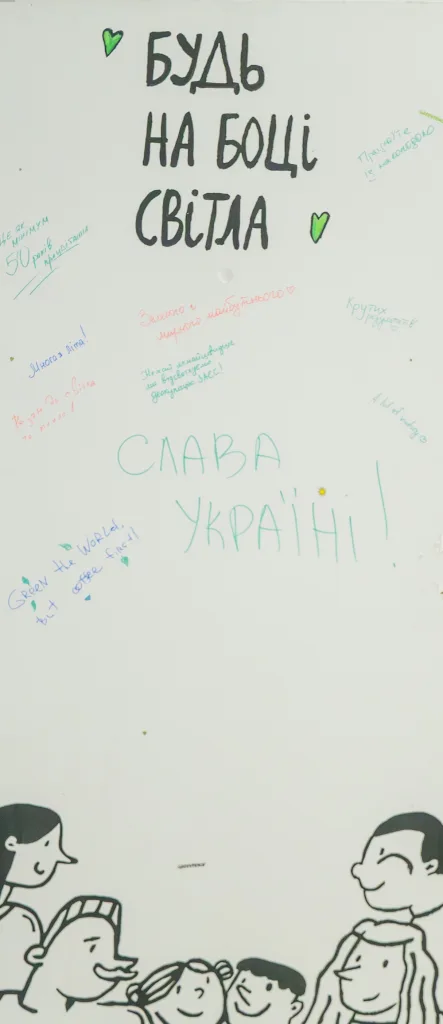
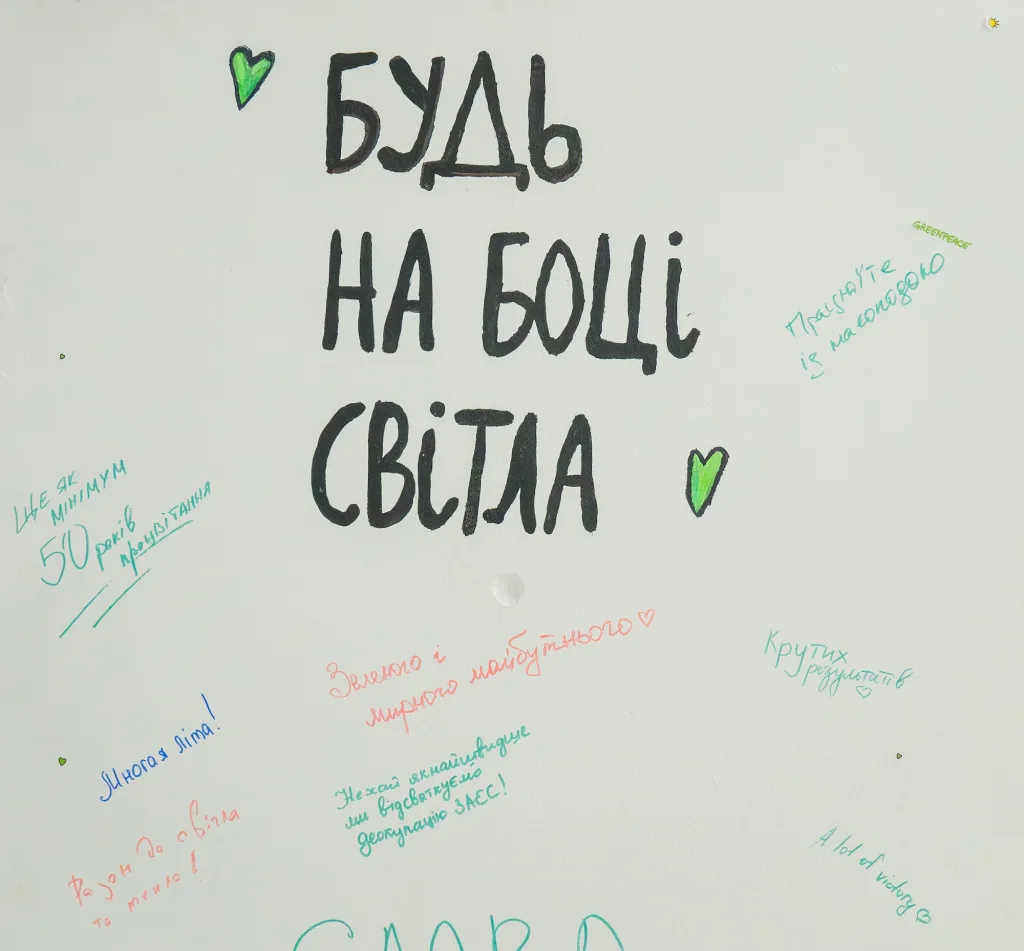
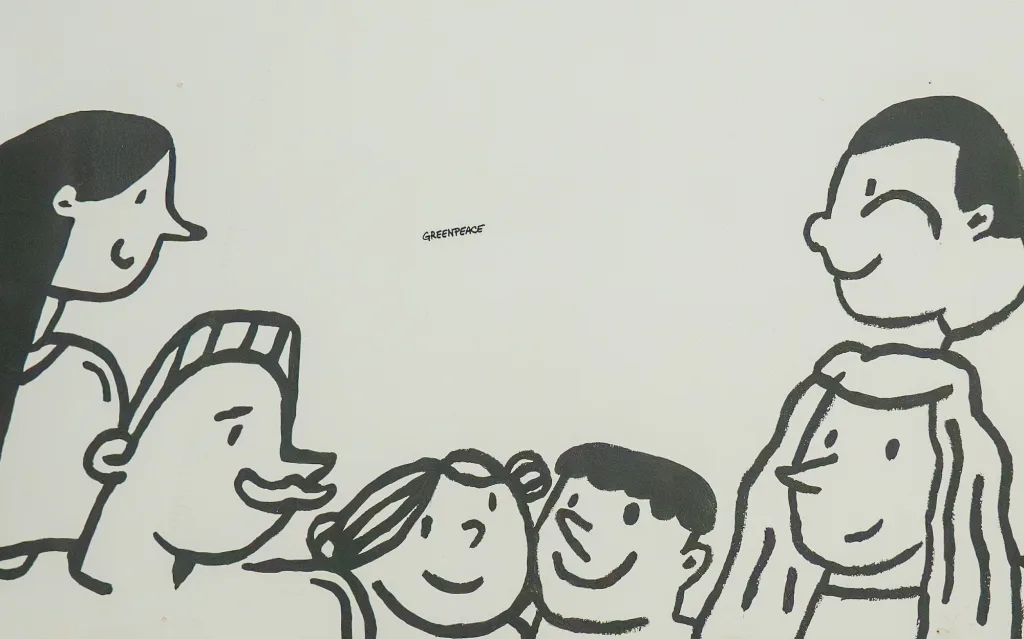
— What would you like to see in an ideal country?
— Critical thinking in people.
Integration into education of a basic understanding of environmental issues: how we affect the environment, what is the problem with plastic, why climate change is happening, what is wrong with extractive industries.
And one more thing – state regulation in the environmental sphere. Because the free market does not work here, and it is the state that must introduce and control restrictions that protect the environment from excessive and unsustainable use.
— What are your funding paths?
— As I said, the main way is individual donations from people from all over the world. We do not have such a system in Ukraine, so donations are collected in other countries and we are provided with support. We also receive funding through grants from private foundations that share our values.
— Are you undergoing audits?
— Yes, of course. Annual audit of the entire financial system. Every time, a third-party audit company is hired to conduct a financial audit. It is always an external auditor and it is mandatory annually.
— How can everyone contribute to your cause?
— Lead an environmentally friendly lifestyle. At a minimum, use reusable cups to buy coffee or tea. As a maximum – to study and use green technologies, which are the future. Teach your children to love the environment. And also follow the Greenpeace social networks in Ukraine, join our events and campaigns, the main goal of which is to build a successful and sustainable country. Our team knows it’s possible.
Read also: Head of Help in Ukraine Oleksandr Novikov: our leitmotif is that we are all volunteers at heart




